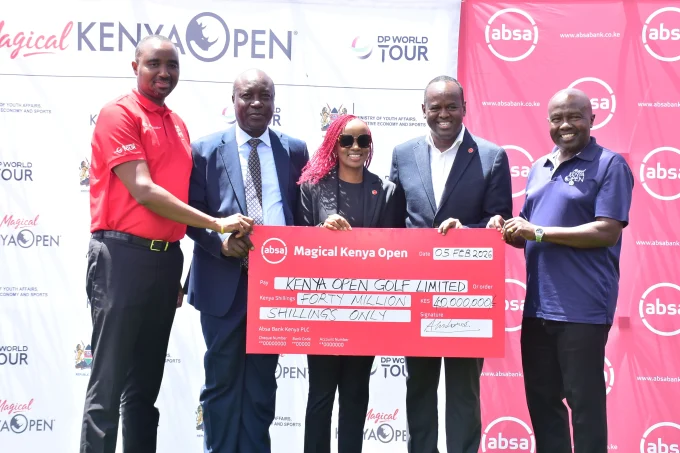At the just-concluded Agricultural Society of Kenya (ASK) trade fair at the Jamhuri grounds in Nairobi, President Uhuru Kenyatta placed a bid of Ksh1.1 million to get the best bull at the show. He beat governor Evans Kidero to the prize bull by Ksh200,000.
The two-year old castrated bull christened ‘Champion’, a cross breed of Boran and Simmental species, weighed 560kg. The President donated it to the Nairobi area police. Mr Kidero walked away with the second-placed steer – a 625kg pure Boran breed; he paid Ksh950,000.
Apart from their genetic composition and winning ways, the have more in common: they were both bred by the Kenya Seed Company and were reared from birth by the same person: Jafred Kangala, who kept them at the seed company’s Elgon Down Farm in Entebbes, Kitale.
The 58-year-old breeder says the two bulls were earmarked for the competition from birth. “They were separated and weaned from their mothers at about eight months. This was done specifically for the ASK show,” said Mr Kangala.
The two bulls, commonly known as the East African Boran, have a unique genetic composition from the Zebu, European-Middle East Bos Taurus and African Bos Taurus. This breed is believed to have been there for approximately 2,000 years.
The original hybrid has a hump and a general white colour with dark spots and pigmented black skin but it is also common to see a brown version with dark spots around the neck, the backside and around the hump. The steers have loose and thick skin with fine short hair that makes them tolerant to drought and heat, the unique qualities that makes them highly favoured by farmers in arid areas.
Make them feed more and more
Mr Kangala, who has worked at the Kenya Seed farm since 1997, explained that at birth, male calves of crossbreed weigh approximately 28kgs while female ones are 3kgs lighter.
Animals earmarked for breeding are fed on sunflower fibre, hay, lucerne, maize crushed together with cobs and sorghum, feeds mixed with molasses and water. These, the breeder said, help them to attain fat content.
Mature cows are medium-sized and weigh between 350kg and 400kg (live weight) and are known for great mothering skills. Developed bulls on the other hand can attain a peak weight of 800kg or higher. Despite their huge mass, such bulls are docile and are easy to handle.
“We normally sprinkle some molasses on their feeds and add an appetiser to make them eat to their fill twice a day before and after grazing. We also give them saltlick, which also helps in fattening,” said Mr Kangala. “With all that feeding, a bull drinks up to 20 litres a day,” he said, adding that they graze in a five-acre field from 9am and are vaccinated, dewormed and spray-dipped every two months.
Bull number two won by Nairobi Governor Evans Kidero.
The Kenya Seed Company owns about 600 cows in total in Kitale. The main species are hybrids of Boran and Hereford, Boran and Simmental, Simmental and Hereford. They also rear pure Boran bulls, which Mr Kangala describes as the perfect beef cow.
Every year, the company which specialises in researching, developing and marketing agricultural seeds, sells about 60 Borans for beef to local butchers. The company’s head of sales and marketing Sammy Chepsiror says that besides developing seeds for crop, they also come up with seeds for cattle pasture.
“We want farmers to learn and know the right ways to feed their cows in order to maintain high standards for stock fat. That is what puts us ahead of the pack at the ASK shows,” said Mr Chepsiror.
A bull of about 450kg normally retails at about Ksh70,000 at the farm but the prices can go up to Ksh285,000, depending on fat content. Besides rearing cattle for beef, Kenya Seed also keeps about 100 cows for milk production, from which they collect approximately 500kgs of the product every day.
At this year’s agricultural trade fair, the seed firm showcased a total of 24 bulls which weighed an average 220kgs. They were all sold at an average auction price of Sh300,000, said Mr Chepsiror.
Cross with approriate breed
Samuel Gathongo, the chairman of the Association of Kenya Auctioneers, said they consider a number of qualities in a winning steer (bull) over and above its weight. Boran crossbreeds or pure Borans with fewer teeth and are young are preferred by butchers since they have tender meat, he explained.
“Kenyan commercial ranchers have long recognised the Boran cross breed’s prolific qualities and small size compared with other Zebu and composite breeds,” the Boran Cattle Breeders Society says. “Furthermore, by crossing with an appropriate Bos Taurus sire, any desirable beef or dairy combination can be custom-made. The genetic completeness of the Boran cow simplifies herd structure.” (Business Daily)
NEXT READ: ACCOUNTANT WHO IS HELPING PEOPLE LOSE WEIGHT
















































![Pula Co-Founders and Co-CEOs, Rose Goslinga & Thomas Njeru. Pula provides agricultural insurance and digital products to help smallholder farmers manage climate risks, improve farming practices and increase their incomes. [ Photo / Courtesy ]](https://businesstoday.co.ke/wp-content/uploads/2021/01/Pula-Co-Founders-and-Co-CEOs-Thomas-Njeru-Rose-Goslinga.jpg)




























































Leave a comment